Pakistan Aluminium Beverage Cans Limited (PABC) is gearing up for their Annual General Meeting (AGM) set to be held on the 28th of April this year. On most days, the notification on the Pakistan Stock Exchange (PSX) announcing such a meeting wouldn’t be particularly interesting.
But in this case, it marks a shareholder meeting at an interesting time for an even more interesting company. The PABC is the only producer of aluminium cans in Pakistan and is an integral supplier to all major carbonated drinks bottlers in Pakistan and Afghanistan, including giants such as PepsiCo franchisees and Coca Cola bottlers.
The company has only been around for six years, and in October 2022 announced its intentions to amp up production capacity by over 26% from 700 million cans a year to over 950 million cans.
But what are the origins of this relatively new company, and how is it expanding so quickly? Very briefly put, nobody in Pakistan had the bright idea to introduce an aluminium cans business in Pakistan until PABC stepped onto the scene in 2017, and now they are expanding so fast that there might not be much room left in the market.
Better late than never?
Soft drinks, a consumer item, have been available in glass bottles in Pakistan since the 1950s at least. Fast forward to the 1970s, imported soft drinks contained in aluminium cans became available in Pakistan. Move to the 1990s, and you’ll find that companies have set up factories in Pakistan that do the process of filling aluminium cans with soft drinks. Now, what about the aluminium can itself?
It’s startling that the first local production of aluminium cans only began in 2017- roughly 60 years after soft drinks were first marketed in Pakistan. In comes the Pakistan Aluminium Beverage Cans Ltd (PABC). Better late than never, the company has constantly been reaping profits. Just three years after its formation, PABC sought an initial public offer (IPO) on the Pakistan Stock Exchange (PSX). The company planned on raising at least Rs 3.3 billion by offering a 26% stake to institutional and ordinary investors.
PABC began operations in 2017 as the country’s only local manufacturer of aluminium beverage cans. Until then, bottlers in Pakistan and Afghanistan were dependent on expensive imports to package their beverages in environment-friendly aluminium cans.
PABC supplied to the bottlers of all major carbonated drinks, including PepsiCo and Coca-Cola, in both Pakistan and Afghanistan. Exports to Afghanistan constituted 35% of the company’s sales in 2020. From its inception in 2017 to expansion in 202, PABC had grown its revenue at an annualised rate of 18.7%. In the third full year of its operation (2020), the company’s net profit amounted to Rs 610.7 million, up 314% from 2019.
The company was significantly helped by strategic lobbying on its part. For instance, in 2017, Pakistan imposed a 20% regulatory duty on the import of aluminium tin cans from Sri Lanka despite a Free Trade Agreement with it, apparently to protect PABC. As per sources, the former Chairman FBR, Abdullah Yousaf, who had begun working for PABC played an instrumental role in successfully lobbying for the protection of his new employers. No matter that no cans had been imported from Sri Lanka yet: the idea was to cover all bases and potential threats, just in case.
PABC’s own press release noted: “Growing can penetration may increase their sales to 650 million cans by 2025, delivering an annualised growth rate of 19 per year. PABC will be its key beneficiary, as imports are virtually non-existent due to high freight costs and duties.”
Expansion plans and current financial standing
As things stand, PABC’s production capacity is 700 million cans which they want to bring up to 950 million cans. According to PABC’s latest financials, its net sales increased from Rs 5.10 billion to Rs 10.85 billion during the first nine months of 2022, ending September 30. Within this time, PABC recorded a growth 0f 88.79% in comparison with the corresponding period last year.
How did sales increase so dramatically within a limited time period? The driving factors behind sales growth were currency devaluation, metal price increases and the volumetric growth of sales. As a result of these factors, PABC sales reached an all time high.
How did this impact the company’s profits? The gross profit during this time period stood at 34.11%, compared to 34.92% during the corresponding period last year. The profit after tax increased by Rs 1,274 million to Rs 2,468 million- which depicted an increase of 106.66%, compared to the corresponding period last year.
Last year in June, PABC raised Rs4.6 billion against an offering of 94 million shares at a strike price of Rs 49 per share- which was 40% above the floor price of Rs 35 per share. The plan was to raise Rs3.3 billion.


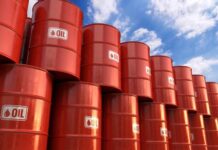
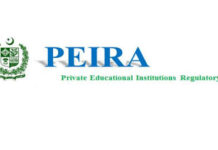


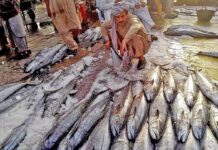




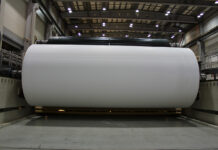








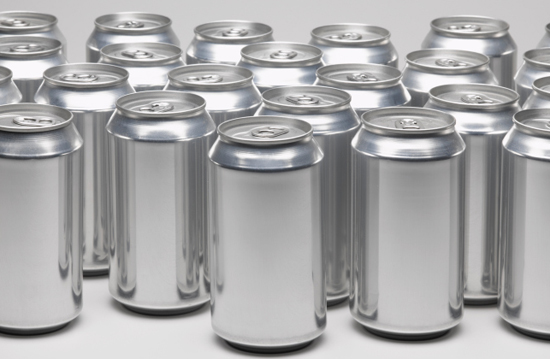




The first canning plant was setup in Gadoon amazai way back in 1993, using empty cans imported from Dubai. Green cans bearing graphics of Pakistani flags were launched on Aug 14.
The plant ceased operation a few years later, in the face of widespread smuggling of filled cans from UAE & Saudi Arabia and heavy import cost of empty cans.
The second can filling line was setup by another visionary from karachi, around mid to late 90’s and has been in continuous operation since then.
You may want to correct your record about the first canning line being setup in 2027.
Even though no cans from Sri Lanka had been brought in yet, the plan was to cover all possible areas and threats, just in case.